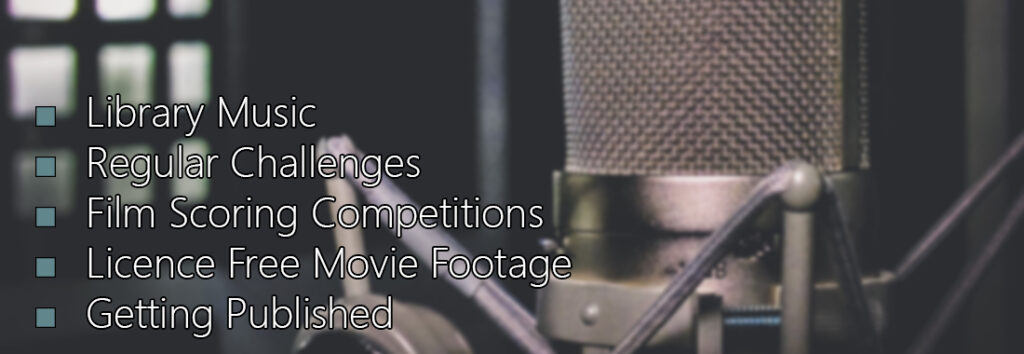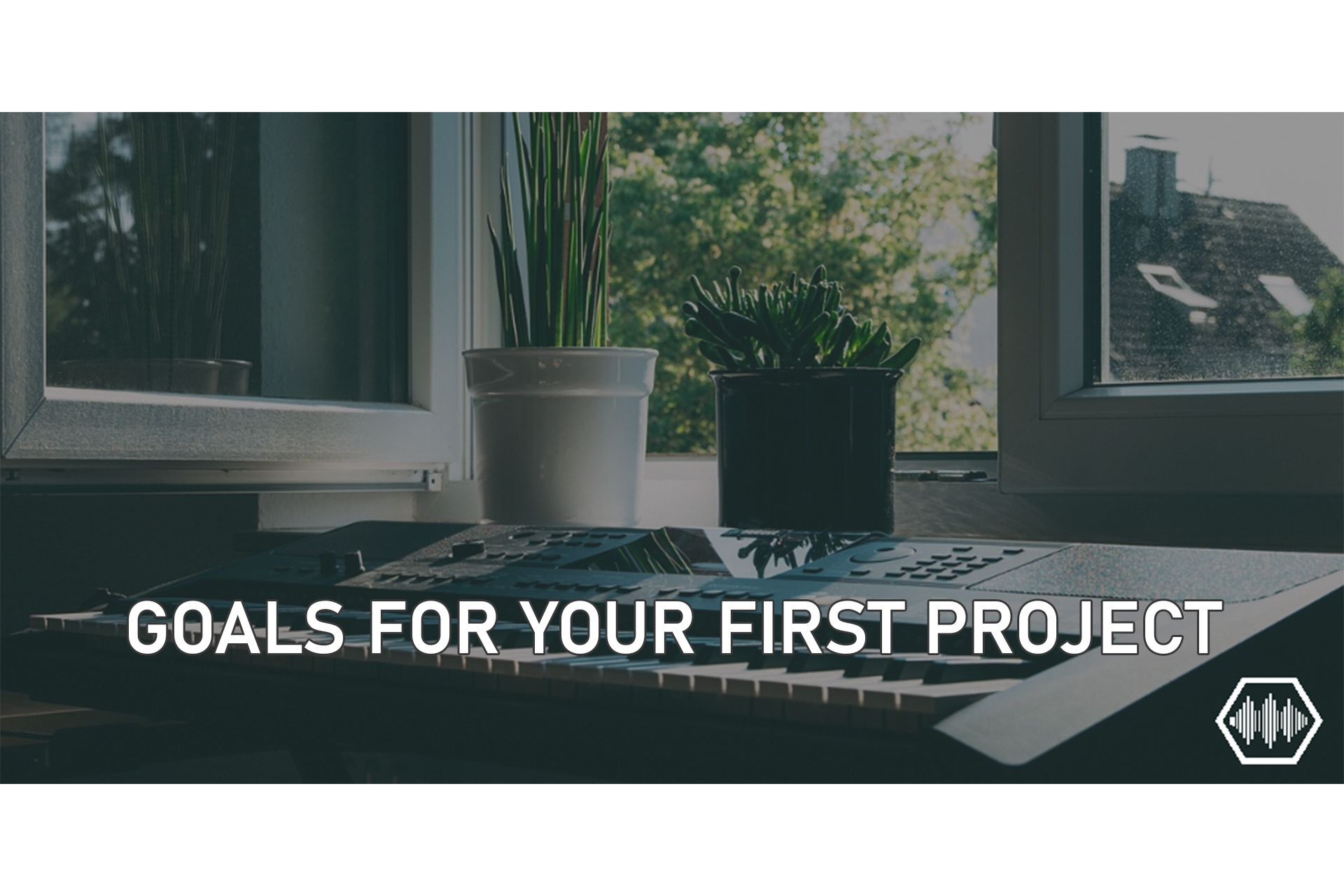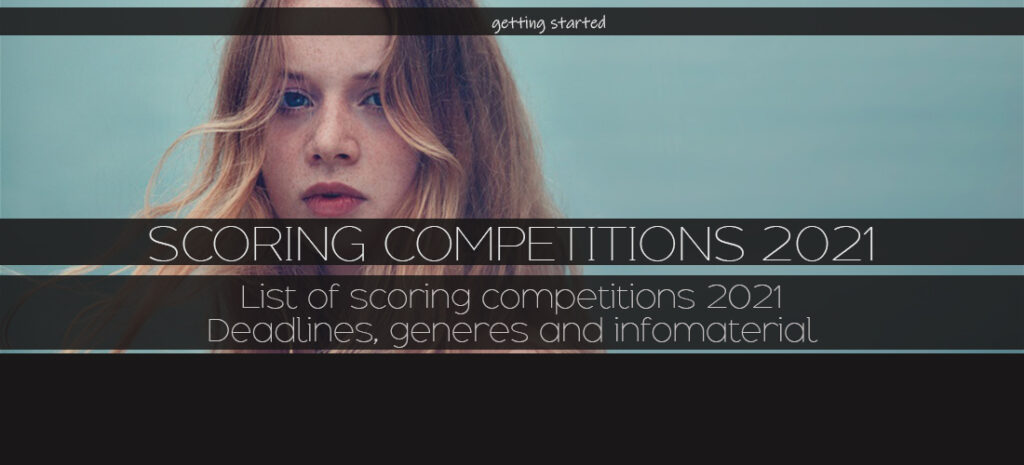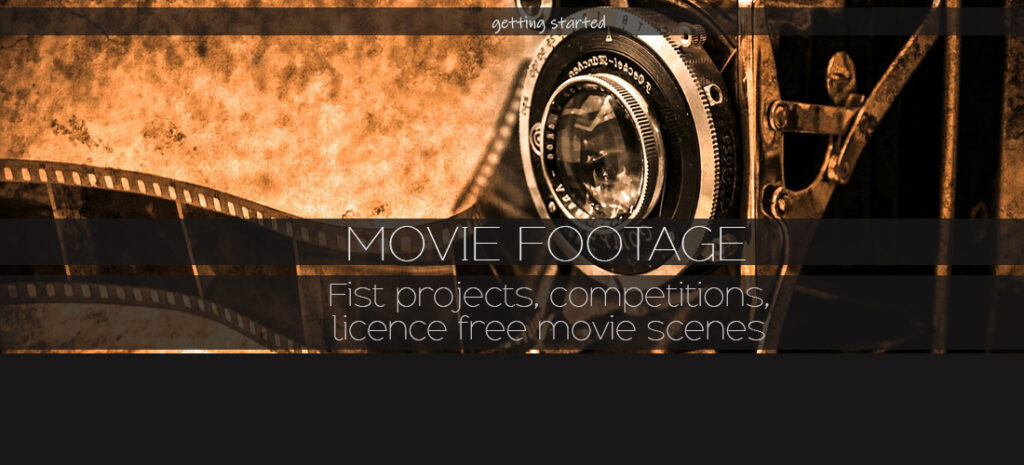Making your first steps is one of the greatest and most inspiring moments in your entire career. There are so many new things to discover; you try to find your own style and your head seems to explode with new and great ideas. But you don’t know what you are writing for. You want to be part of a bigger project, get a picture to write for, and make your first steps into the industry. The sad truth is that there are no jobs available, no open projects waiting for you, and it’s tough to find a goal to write your scores for.
To get started, you can choose between a few smaller options. You can always publish your scores on audio libraries and focus on that side of the industry. You also might take a look into weekly challenges organized by various sites and groups on the internet. My personal favorite is participating in international scoring competitions and getting really deep into writing for picture with a really steep learning curve. Let me show you how to get into these opportunities.

Writing Library Music:
Library music, also known as production music, is the backbone of today’s TV and Advertising services. These specialized platforms offer ready-to-use tunes that are far less expensive than hiring a composer for an original soundtrack. Depending on what you are looking for, you can sell your tune to more than only one customer.
Writing library music will probably not making you famous, but it might make you rich. Compared to other types of music production, it is way easier to get started, and you can open a second stream of income. A good place to start is “Audio Jungle” and “Pond5”. On these two platforms, you can get a sense of what customers are looking for, and most importantly, on which level of quality you need to get to be successful.
With library music in mind, you might find your first goal. Maybe you will upload a specific amount of tracks, test out new genres and find your style of music. But the most important part is that it can keep you motivated. You have a goal to write for, and you can learn a lot on its way.
Publish your work regulary
If you want to publish your scores on sites like YouTube or Spotify, it would be good to do so regularly. Not only because you need to put things out to please the algorithm, but you need to develop a habit of working and especially finish your musical ideas. Often the big challenge is to get the tracks finished. You need to mix and master them, get them to a reasonable size, do a bit of marketing, and all that stuff that comes along.
Becoming a composer for YouTube or Spotify might sound interesting, but you need to get things done really quickly and efficiently. Therefore I wouldn’t really recommend starting with your own channel. However, the best part about YouTube is that you get seen relatively quickly. People are more likely to come across your content, and for us, more important – giving us valuable feedback.
Let’s imagine you’ve written an epic orchestral score, and you upload it to a license platform like audiojungle or pond5. Many listeners love to hear this kind of music, but they will not find you unless they want to purchase a license. On YouTube, on the other hand, it’s way easier to find your audience.
To get things rolling, I recommend trying and getting your music published by big YouTube Accounts, which focus on your type of music. Here I have channels like “Pandora Journey” or “Epic Music World” in mind. If you search a bit, you can find way more channels that would be happy to publish your work. Each of them has its own criteria, and you might not get published right away. But it would be a great first goal to try to achieve.
Participate in scoring competitions
Now throwing yourself right in the deep water. Scoring competitions are without a doubt the best possible way to learn how to score to picture. It is the closest we can get to score a film without having a contract. Sure, you could try to rescore your favorite scenes in cinema history and upload them to YouTube, but there is no deadline, no judge, no competition, and so on.
But how do competitions work? First of all, you need to find a competition you like and sign up. Usually, you have to pay an entry fee of about 20$. The pricing depends on the competition and on what the organizer will offer you in return. After that, you get a deadline, and you are ready to start!
Well, usually, you look through the material, realize that you have absolutely no clue, look a second time, cry in the corner, and after a few days, an idea starts to form. Usually, you have ~ 2 months to finish your submission, so it should be possible to have enough time to work on your project, even if you have a full-time job aside.
The best part about scoring competitions is that usually, a community around this project gets formed immediately. You can glance at other artists’ work and get in exchange; you might even form up to work together. You should keep in mind that there are usually a few hundred participants, and if your goal is to get ranked in the first 10 places, the competition is really, really hard. In all competitions, I took part in only the first ten places got displayed. So it’s a bit unfortunate that you don’t get a specific rank. For me personally, that could be a huge motivation.
Choosing the right competition is key. I saw a lot of events where the theme and genre of music is absolutely not my taste. So I haven’t signed up for those. But in my opinion, scoring competitions are the best possibility to get started and getting your first original scores done.
Scoring licence-free Footage
It’s a really unpleasant feeling if you want to write to picture but don’t have access to actual footage. Of course, you can try to recompose your favorite movie scenes. The downside is that you aren’t allowed to upload it with the original footage anywhere – so you can’t use it to build your catalog.
However, there are a ton of opportunities to get access to license-free clips and scenes. These are a great way to get practice and improve your workflow. On top of that, you can use these projects as a reference and get valuable feedback in this way.
For this, I recommend either using your own stock-video projects or sign up for actual practice footage for composers or video producers.
“The Cue Tube” is a great source for this. It’s a platform dedicated to aspiring composers, that want to have some high-quality footage for their use.
If you want to look deeper into this topic, I highly recommend the Article “Scoring to Film – Where to get movie footage“, where I show you a few more sources and possibilities.



